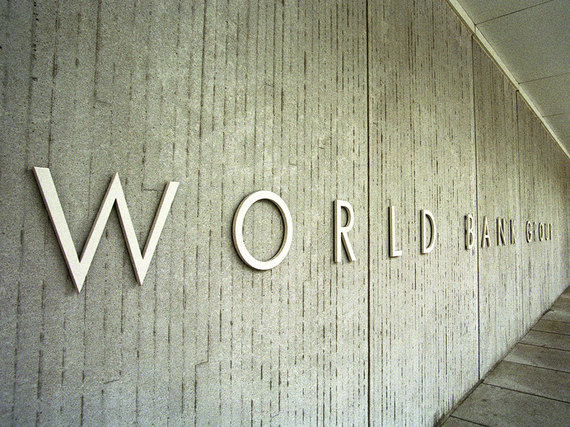This past weekend, world leaders assembled at the United Nations in New York City to formally adopt the new Sustainable Development Goals, a new and historic commitment to eradicate hunger and extreme poverty, fight inequality and injustice, and tackle climate change.
This ambitious agenda can be achieved, but it cannot and will not be development as usual. The adoption of the global goals in fact heralds a new era in the fight against global poverty, an era where poor countries will be more in the driver seat when it comes to their development needs, not being driven around by rich country donors. Aid will still be crucial, but increasingly, developing countries will also be expected to raise their own resources to finance development. The private sector is also likely to play a bigger role in development. And donors will be asked not just to give aid, but to also ensure that their own actions, or the actions of their corporations, do not stand in the way of development.
We already got a hint of this new era in July, at the UN Financing for Development Conference in Ethiopia, where developing countries put the onus on the rich ones not on aid, but on fixing the broken tax rules that allow multinational corporations to hide their profits instead of paying their taxes, which in turn could be used for schools, clinics, roads and other development priorities.
So where does this leave the World Bank? Leaving aside, at least for now, the creation of the new development banks, like the Asian Infrastructure Investment Bank, or the likely graduation of many of the Bank's clients in the coming years, how will the World Bank Group need to adjust to this reality, and more importantly, contribute to the effort to bring the global goals to life?
First, the World Bank will have to continue further on the path that Jim Yong Kim is taking the institution, shifting from a neoliberal belief that growth trickles down to instead focus on the poorest 40%, and from the emphasis on the volume of lending to an emphasis on demonstrating positive development impact on the poorest people for every single project is takes up. But there's still a long road ahead, as our Health in Africa report showed.
Second, the World Bank will need to tackle something that's a bit uncomfortable: income inequality. It will need to look at the gap between the poorest and richest people and the trickling up of wealth not just for the sake of fighting inequality, but because increasing inequality will make it harder to reach the goal of ending extreme poverty. Indeed, as long as political and economic elites are able to capture the fruits of growth and rig fiscal and political systems in their favor, all its efforts to end ending poverty will be less efficient.
The Bank is likely to be asked to monitor the inequality target, but it needs to do much more than that. The Bank needs to help build the data, develop research on the impact of different policy interventions on inequality, incite countries to invest in free and public health and education which mitigate inequality, and help countries build more progressive tax systems, and maybe more importantly to use its strong influential voice to speak against political and economic elite that capture a system in their favor.
Third, the World Bank, has to focus on something it has historically ignored at the macro level, and that is climate change. This has already changed dramatically under the leadership of Jim Kim, but much more is needed, including finding new revenues for climate-focused projects, mainstreaming climate change into development projects, and shifting portfolio of the International Finance Corporation (IFC) towards renewable energy and away from fossil fuels. Beyond its own projects, the Bank could be a game changer by working with governments to ensure they have strong environmental standards and climate friendly investments, and the current review process it is undertaking is just the right opportunity to go in this direction.
And lastly, the World Bank has a key role to play in the development of new domestic resources and engaging with the private sector. Domestic resources are the more sustainable source of finance for achieving the global goals but developing countries are not currently exploiting the full potential of their fiscal systems. Worse yet, the international tax system facilitates tax dodging by multinational corporations and encourages poor countries to give generous tax breaks and tax rates to attract foreign investment. With its long history of working with governments on governance, the World Bank is ideally poised to play a stronger role in this sphere.
The announcement of the World Bank - IMF tax initiative is good news in that regards. But the Bank must also get its own house in order, and that means changing the Doing Business tax indicator that incentivizes countries to lower corporate taxes, as well as and to look at IFC advice and investment in companies that uses tax havens. The Bank also can't shy away from being a more vocal voice in the international taxation reform debate as it has been until now. It needs to side with developing countries who have been complaining about the lack of inclusiveness of the OECD BEPS process and asking for reforms that would also cover their needs, not just those of rich countries.
Given the IFC's role as the biggest noncommercial lender to the private sector, the World Bank's private investment should focus on setting and implementing norms that encourage companies to respect social and environmental standards and improve their development impact.
The new era of development is just beginning. The World Bank is well positioned to help bring the global goals to life. But will it?
